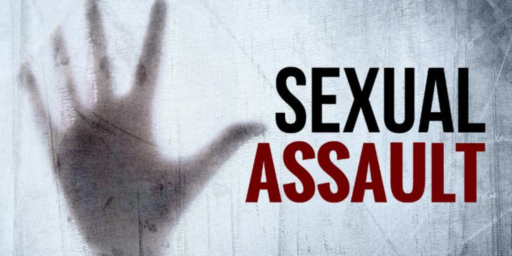Illinois To Solve Medicaid Deficit By Hoping People Smoke More
Illinois wants to solve its Medicaid problem by hoping its citizens smoke more cigarettes.
As most every state has over the past several years, Illinois is facing a serious shortfall in its Medicaid budget to the tune of some $2.7 billion, and Governor Pat Quinn has decided one of the best ways to fix the problem is to hope people smoke more cigarettes:
llinois’ Medicaid program faces a $2.7 billion shortage that its governor has promised to deal with. So how does Gov. Pat Quinn propose to close the fiscal gap for his biggest budget item and largest health program? By relying on the state’s smokers to keep puffing — and paying — away.
Quinn wants to shore up the fiscal health of Illinois’ ailing Medicaid program by imposing a new per-pack tax on cigarettes, thus making the health coverage of millions of disabled and low-income individuals in the state directly dependent on keeping smoking rates up.
But if previous experiences with state smoking taxes are any indication, it won’t work. In his February budget address, Quinn was blunt with state lawmakers. “Our rendezvous with reality has arrived,” he said. He declared his intention to pass a $2.7 billion reform to the state’s Medicaid system. Quinn’s proposal, released in April, included a variety of cuts and payment reductions, as well a $1-per-pack cigarette tax that his office said would raise an estimated $337.5 million directly.
It sounds like a great idea doesn’t it? Contribute to the cost of closing the deficit in a plan that provides health care for the poor by taxing people who engage in an activity that harms public health. There’s kind of a poetic justice to it on some level. The only problem is that there’s plenty of evidence to show that increasing sin taxes on items like cigarettes doesn’t lead to the kind of revenue increases that politicians always optimistically predict:
There are two main reasons why cigarette taxes don’t bring in the bucks their supporters promise. The first is that higher taxes encourage smuggling from nearby low-tax states. Minnesota, for example, has been ratcheting up its cigarette tax for decades — and now has one of the highest rates of cigarette smuggling in the country, according to the state’s Department of Revenue. And after New York City hiked its cigarette tax by $1.42 per pack in 2002, a report by the city’s Independent Budget Office found that more than a quarter of the city’s smokers were avoiding the cigarette taxes. (Tax evasion cost the city an estimated $40 million in 2006.) This is a nationwide problem: Estimates indicate that states lose an estimated $5 billion tax revenue to tobacco smuggling each year.
The second issue is that smoking rates are falling rapidly — and revenues from taxes based on cigarette sales are thus in decline as well. In 2009, for example, California saw an 8.1 percent drop in smoking rates, and a concurring $74 million decline in cigarette tax revenue. One might think that would be unalloyed good news for public health advocates — except that California funds a variety of public health programs, including breast cancer research, with revenue generated by cigarette taxes.
These two factors are especially true now, when taxes on cigarettes and other items have already been raised several times over recent decades both as a suppose revenue enhancer and in an effort to lower smoking rates. When you think about it, actually, those two goals are in many ways mutually contradictory. Once the government becomes reliant upon the revenue from taxes on cigarettes, the extent to which those cigarette taxes contributed to a reduction in smoking actually harms the government interests. Perversely then, it actually ends up being in the short-term interests of states like California and Illinois that people smoke more even though the taxes that they implement result in people smoking less, or obtaining their cigarettes from black or grey market sources thus avoiding the taxes altogether.
Of course, this situation goes on far deeper than just cigarette taxes. As Peter Suderman points out in the linked article, Federal funding for Medicaid is provided on a matching fund basis, meaning that the state one dollar from the Feds for each dollar that they spend. In the past, this created the perverse incentive for states to allow their Medicaid system to become bloated and inefficient with little regard for actual costs. After all, if half the money is coming from Uncle Sugar, who cares how much it costs? Now that the fiscal chickens are coming home to roost, that some matching fund system incentives states to come up with unworkable tax schemes like the one Quinn is proposing in Illinois. If Federal Medicaid funds were block granted, as many in Washington have suggested in recent years, these incentives would be eliminated and states would be forced to work with a fixed amount of funds. That sounds like a far better system than one that had led states like Illinois and California to fund a health care program with the hope that people smoke more.
H/T: Jazz Shaw






Good blog post.
Ah, yes, the vicious cycle of public money social welfare spending. Waste and inefficiency begets larger waste and greater inefficiencies. Rinse, cycle, repeat.
P.S. — It’s not only “in recent years” that “many” in D.C. have been pushing for block grants. Republicans for decades have been pointing out the obvious reasons why that’s a better system, but it’s been like trying to break through a brick wall with one’s skull. Democrats at every turn have blocked those efforts, pardon the pun, and the reality is that Democrats to their last breaths will fight tooth and nail against any real and common sense efforts to shore up Medicaid. The same holds true for Social Security and Medicare. Why? Well, when those programs fail — and it’s when not if — the government will have two choices: massive tax hikes or massive cuts in benefits. The former is the raison d’etre of the current version of the Democrat Party. The latter would provide the pure political framework for ginning up turnout among Democrat constituencies. Connect the dots….
I don’t think Illinois’ main problems are that a $1 increase in the state smoking tax would raise a little less than $300 million — leaving the governor’s office at least $37 million short. Or people might [gasp] stop smoking.
You might say that the smoking tax, plus increased gambling and last years 66% income tax increase (effectively regressive), taken together are harmful to the working class.
But Illinois is going to cut around $1.6 billion in Medicaid, and as Suderman points out, with matching funds, that could work out to around $3.2 billion in lost Medicaid benefits. And then Illinois will have to cut more from Medicaid next year.
How is this any different from embezzling hundreds of millions from foreclosure fraud settlements and using them to plug holes in state budgets? Those aren’t solely “chicago” matters.
While that’s no doubt true, I think what we have here is a case of “Tax the Unpopular People,” which, if you think about it, is actually kind of a popular idea in this country. (Especially in the more liberal areas.) Smoking, on the other hand, is barely tolerated.
Also there’s usually another component of these taxes, to provide an incentive to quit. Oh, it fills gaps in the budget too? Well that’s nice.
Of course, these states could raise taxes a little bit on everybody, but, yeah…..that ain’t gonna fly.
@Herb:
Actually, Illinois did raise taxes on everyone this year. Our state income taxes were raised by 67% on January 1.
From the Chicago Tribune in January 2011: “Gov. Pat Quinn and top lawmakers are hoping to generate $377 million for education by raising cigarette taxes to $1.98 per pack. Combined with City of Chicago and Cook County taxes, cigarettes in the city would include $4.66 in taxes, pushing prices past the $11 mark at some downtown retailers.”
http://articles.chicagotribune.com/2011-01-07/news/ct-met-cigarette-tax-hike-20110107_1_cigarette-tax-campaign-for-tobacco-free-kids-smoking
That didn’t pass, so now they are trying to use that same $1 increase in cigarette taxes to pay for Medicaid. Not sure what they are going to tax now in order to cover unfunded pension plans, poor schools, etc.
While Illinois’ finances are mess, I do have to give our political leaders credit for never having any problem continuing to line the pockets of their friends and families.
@Dean:
Yes, from 3% to 5%. A whole 2 points.
Also, it was a last minute deal to avoid a fiscal trainwreck. Zero Republicans supported it.
@Herb:
Two points may not seem like much to you, but when combined with our very high property taxes, sales taxes, excise taxes, etc. it hit a lot of families very hard. That was money that we couldn’t put back into the economy, use to save for our children’s college education, etc. In addition, the state of Illinois has clearly been among the worst in terms of political cronyism.
Just curious, how much of their money do you believe citizens should be allowed to keep and how much do you believe the government should be able to take?
Out here in California there’s ballot initiative – Proposition 29 – that proposes to raise the tax on cigarettes. To-date, tobacco companies have spent over $40M to defeat the measure, compared with about $10M from donors such as the American Cancer Society and American Lung Association.
What’s interesting is that California too has a big deficit budget problem ($16B) and the Governor has proposed a cut to $1.2B in Medicaid, unlike the above example, Prop 29 monies would be going to new or additional cancer research, not for anything having to do with a current Medicaid budget problem.
This Illinois resident has no problem with the increased state income tax, and I knew what I was getting into with property taxes. We need sustainable revenue solutions and more tobacco taxes aren’t going to cut it, and as PD points out, gambling and other proposed taxes do impact the working class more.
I just quit smoking and this proposal just gives me more incentive to stay quit. It’s no way to run a state. I don’t blame Quinn too much; it’s not like he could get a normal tax increase, or sufficient spending cuts, through our legislature. I’ll be voting for opposition candidates for the state legislature again this year (not that it does an good).
@Dean:
Just curious, how much of their money do you believe citizens should be allowed to keep and how much do you believe the government should be able to take?
The government should bring in enough revenues to cover it’s spending. If residents want the services that the state provides, they will need to be taxed enough to pay for them. There is no hard percentage.
@Dean:
2 points, combined with anything else, is still 2 points. It’s not much to ask to pay off the bills. As Mantis says:
@Herb: Exactly. I love the number of so-called conservatives who think that our highways, roads, cities and court system somehow get supported by the Infrastructure Fairy.
You want roads? We’re going to have to pay for it. You want to not have to support your aging and gaga mother in a nursing home when she runs out of money? We’re going to have to pay for it. You like not having to worry about getting pestered every 3 feet by a beggar? We’re going to have to pay for it….
@grumpy realist:
Not sure how you inferred that by any of my comments here. I use Metra and the cost of Metra was increased. I use the tollways and the costs of the tolls were increased. I had no issues with the users of those services paying more.
Now, regarding the panhandlers, I run into panhandlers every time I am in downtown Chicago, so I’m not sure what your point is there.
If you would like the government to have more of your money, you are more than welcome to send it in. However, the state of Illinois has created a fiscal crisis of its own political making. I don’t know of anyone who was in favor of completely out of control pensions for state workers. I don’t know of anyone who was in favor of allowing politicians, such as Mayor Daley, to game the system in order to increase his pension payout by $50K a year, while reducing his payout by $400K.
http://www.chicagotribune.com/news/local/ct-met-pensions-daley-20120502,0,975077.story
That’s why I am tired of the increasing taxes in Illinois. No effort to reduce the cost of government, while always looking for taxpayer handouts.
I think that Illinois’s problems are being mischaracterized in comments. The state is primarily dependent on three revenue sources: the personal income tax, the corporate income tax, and sales tax. City and county governments are dependent on sales tax and property taxes and do not have the power to levy income taxes and are limited in how quickly they can raise the property tax rates.
Revenues in the state are flat or declining even with the substantial tax increase that went into force last year.
Most of the state’s expenditures are for education, healthcare, and pensions. All three of those are increasing faster than incomes, retail sales, and property values and, consequently, faster than revenues. As long as that’s the case there is no tax increase that will solve the state’s problems.
Additionally, for each tax increase there’s an adverse economic impact. So, for example, in the case of the excise tax on cigarettes in addition to the tax evasion schemes that Doug mentioned in his post the price elasticity of demand for cigarettes is such that the revenues realized from the tax are less than envisioned by legislators. Increasing the sales tax drives retailers out–additionally, Chicago already has the highest sales tax of any major city in the country. Increasing the personal income tax drives some taxpayers out of state. Increasing the corporate income tax drives some companies out of the state (this has already resulted in some highly publicized exemptions and departures).
What Illinois really needs is growth and growth is elusive.
As an Illinois resident I don’t reflexively object to tax increases. As some commenters suggested above, there aren’t any ready substitutes for some of the services the state provides and those services must be paid for.
However, I do object to tax increases when the tax increases don’t solve the problem but merely kick it down the road a bit. Illinois’s problem is that the state and local governments over-promised relative to the capacity of the state to pay. The solution to that is to revise the promises downwards.
Will be interesting to see what happens when Illinois residents (and eventually travelers) entering the state have their cars searched for untaxed tobacco, rolling papers and who takes control of the black market trade.
@Dave Schuler:
Considering that this is the root of the problem:
Maybe “tax relief” is one of the promises that must be revised downwards.
As to the stuff about “adverse economic impact,” I think we need to calm down on that. I know in my state, there’s a few companies thinking about expanding operations here. Cabela’s wants to open two new big stores. Gaylord Hotels wants to open a big entertainment complex. Both are touting their ability to create jobs.
And both have their hands out for tax breaks, land grants, and infrastructure incentives, which the state and local communities are more than happy to provide. Repeat this on a national level and you have the United States circa 2012, the land of rent-seeking enterprise.
For the guy who’s moving out of state because he can’t afford the 2 point tax increase, really? He can afford to drop his job, liquidate his property, hire a moving van, all that…but not 2 more bucks out of every hundred in taxes? That’s not an adverse economic impact. That’s just a bad choice.
@Herb:
Or as Senator Long once put it, “Don’t tax you, don’t tax me, tax that fellow behind the tree!”